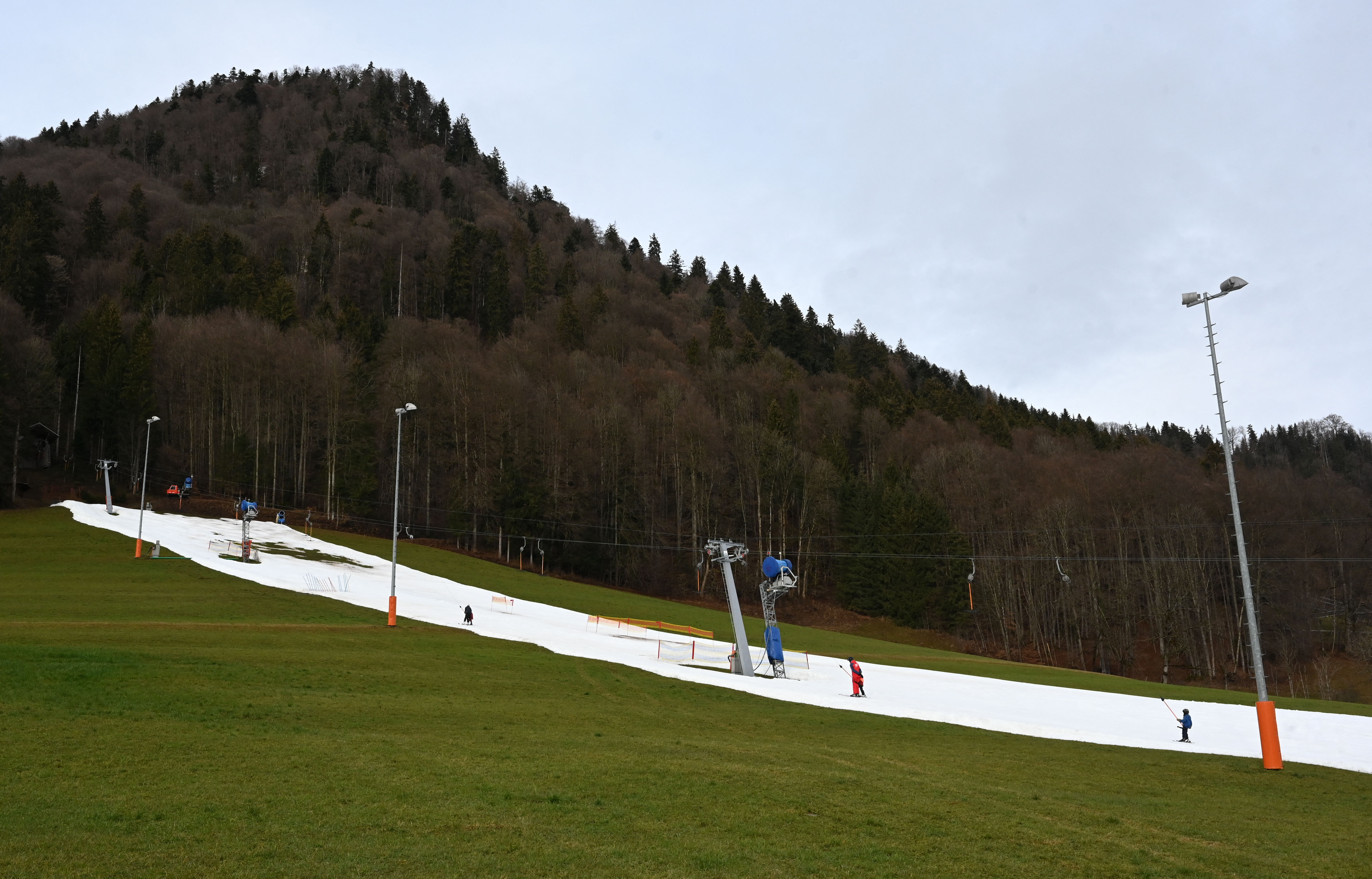Climate change threatens future of European winter sports

As the yearly skiing season draws to a close, European ski destinations can start preparing for the next. But with the ever-growing threat of global warming, many ask themselves if there is a future for the sport at all.
The next Winter Olympics are set to take place in Milan. Time will tell how many of the disciplines will take place on real snow. The average temperature has risen three degrees since the 1960s, according to a report from the Italian environmental NGO Legambiente, and Italy saw its hottest summer on record last year.
This trend is not likely to improve. The Institute for Snow and Avalanche Research at Davos predicts snow in the Alps will decline between 30 to 70 per cent by the end of the 21st century. The average snow season will also shorten due to rising temperatures.
Unsustainable practices
European resorts are already struggling to stay afloat. Almost every Italian ski slope now depends on artificial snow. This method is inherently unsustainable because the machines require massive amounts of water and energy, which only exacerbates climate change. It is also increasingly hard to maintain due to the rising cost of electricity, which has forced hundreds of resorts to close.
The wealthiest resorts spray artificial snow to their slopes to guarantee they can open, while others only open when the meteorological conditions allow. Others have stopped focusing on the winter season, instead promoting year-round tourism activities that don't rely on snow, like hiking and mountain biking.
This means the future of European winter sports is in danger. 2022’s Winter Olympics in Beijing hardly featured any real snow, and this will likely be the same in 2026. Artificial snow often contains chemicals that ensure it stays frozen in higher temperatures, which can threaten biodiversity. It also creates a faster surface for athletes, which can result in more severe injuries.
Dangerous precedent
On the world’s current high-emission trajectory, only five of the 21 previous host cities would have reliable winter conditions for the Winter Olympics by 2050, according to a study by the Canadian University of Waterloo. By 2100, this figure decreases to just one: Sapporo, Japan.
Experts have called for the International Olympic Committee to limit the scope of future Winter Olympics, and to only host them in places that are least affected by climate change. But by allowing the 2022 edition to be held in Beijing, a cold but very dry area, they fear a dangerous precedent may already have been set.
"The challenge will be for the International Olympic Committee to reimagine the Games in more sustainable ways,” sport ecologist Madeleine Orr told Insider. ”[This includes] a revisit of the scope of the Games so they become less expensive, less invasive in a community and more feasible for smaller cities and venues to host."
An artificial snow slope in Germany. © Christof STACHE / AFP